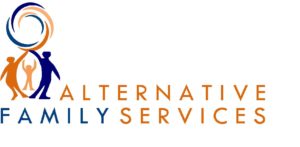Staff in Action: Candyce Phifer
Candyce Phifer, MSW, who is a Case Worker at the AFS Sacramento office, is one of our fantastic staff members. In this interview, we’ll get to know Candyce and her work at AFS.
What are your main responsibilities at AFS?
I started as an intern and then became a case worker. My work encompasses a little bit of everything. I support resource parents, kids in care, arrange services, and appointments. Managing crises is also a big part of the job.
Recently, I have helped with home approvals and adoptions, which is exciting for my job.
What led you to work in this field?
When I was going to school for my MSW, I was placed as an intern with AFS and I stayed upon completion.
Why did you choose to work at AFS?
I interned at AFS for almost two years and was hired as a case aide. I liked the culture and people I worked with in Sacramento. The environment was supportive and family-like. I didn’t want to take a gamble going somewhere else and risk losing the family-like nature of Sacramento.
What are the three best things about your job?
Helping children navigate through exceedingly challenging times of their lives. It’s amazing to work with and support clients through therapy, visitation, and ultimately permanency. I like to help kids find their footing again, especially because foster care is derailing to a child’s life. The best part of my job is helping clients find stability and ensuring we place them in homes with good, loving people to help them on their journey.
What is the toughest part of your job?
The toughest part is having kids come into care from tragic situations where they have experienced a range of trauma, abuse or neglect. I think that’s the hardest part, hearing the stories of some of the environments and experiences these kiddos come from can really weigh on us as caseworkers. It’s a lot to digest sometimes, but the inverse is we get to help them through that.
What are some common misconceptions about foster care that you’d like to address?
I just had this conversation at my daughter’s school. I don’t tell people I’m a social worker, especially a foster care social worker, because they just assume that I’m CPS and I want to take their kids away. The assumption that social workers remove kids from all situations is our goal. I think fighting the stigma that kids are unjustly removed from homes. Kids are often removed from situations while the family works through a crisis point. Ideally, a child can return to a more stabilized home environment.
Tell us about one impactful moment that you’ve had while working at AFS?
Thankfully, I’ve been lucky to have quite a few impactful moments, especially on the adoption side of things. Getting a kiddo to adoption with that permanent, forever family is always exciting. I’ve also had a couple of heartfelt reunification stories, which I think aren’t talked about as much.
We had a little girl, she was three, and her mom came in and said, I’m broken. Help me fix this. And six months later, she was able to go home. Her mom secured housing, started taking medication for schizophrenia and stabilized. It’s stuck with me that there are a lot of reunification stories that don’t get a light shined on them. These stories provide fuel to keep moving forward.
What is an interesting fact about you that others might not know?
I was adopted when I was five by my stepdad because my biological father was a drug addict, and I think he was also a drug dealer, so he left when I was one and my stepdad took over. He officially adopted me when I was five, so I would be raised in a two-parent home. I think most people just assume it’s my actual family. They don’t know I’m adopted.
Are there any other success stories that are particularly memorable that you’d like to share?
I have a female teen client who has been on my caseload on and off for four years. We have navigated so many things together. She just invited me to her high school graduation, so she’ll be graduating with honors right before summer, and she has plans to go to college. She is doing so well.
What’s one piece of advice that you would provide to someone starting off in a similar role?
I think coming in as an intern I was able to learn about the industry without an overwhelming caseload. I took baby steps into my position which was very helpful. I’ve learned the biggest thing most people want in this field is for you to listen and not just come in and tell everybody what’s going to fix the situation. You can’t come in with a bunch of Band-Aids and just stick them everywhere because it’s not going to work. The biggest thing is you must come in and listen to where people are and where people want to go and then help navigate that process.
